第108章 CHAPTER V THE TRIAL(4)
"In completing these decorations, the defendant incurred liabilities and expenses which brought the total cost of this house up to the sum of twelve thousand four hundred pounds, all of which expenditure has been defrayed by the plaintiff. This action has been brought by the plaintiff to recover from the defendant the sum of three hundred and fifty pounds expended by him in excess of a sum of twelve thousand and fifty pounds, alleged by the plaintiff to have been fixed by this correspondence as the maximum sum that the defendant had authority to expend.
"The question for me to decide is whether or no the defendant is liable to refund to the plaintiff this sum. In my judgment he is so liable.
"What in effect the plaintiff has said is this 'I give you a free hand to complete these decorations, provided that you keep within a total cost to me of twelve thousand pounds. If you exceed that sum by as much as fifty pounds, I will not hold you responsible; beyond that point you are no agent of mine, and I shall repudiate liability.' It is not quite clear to me whether, had the plaintiff in fact repudiated liability under his agent's contracts, he would, under all the circumstances, have been successful in so doing; but he has not adopted this course. He has accepted liability, and fallen back upon his rights against the defendant under the terms of the latter's engagement.
"In my judgment the plaintiff is entitled to recover this sum from the defendant.
"It has been sought, on behalf of the defendant, to show that no limit of expenditure was fixed or intended to be fixed by this correspondence. If this were so, I can find no reason for the plaintiff's importation into the correspondence of the figures of twelve thousand pounds and subsequently of fifty pounds. The defendant's contention would render these figures meaningless.
It is manifest to me that by his letter of May 20 he assented to a very clear proposition, by the terms of which he must be held to be bound.
"For these reasons there will be judgment for the plaintiff for the amount claimed with costs."
James sighed, and stooping, picked up his umbrella which had fallen with a rattle at the words 'importation into this correspondence.'
Untangling his legs, he rapidly left the Court; without waiting for his son, he snapped up a hansom cab (it was a clear, grey afternoon) and drove straight to Timothy's where he found Swithin; and to him, Mrs. Septimus Small, and Aunt Hester, he recounted the whole proceedings, eating two muffins not altogether in the intervals of speech.
"Soames did very well," he ended; "he's got his head screwed on the right way. This won't please Jolyon. It's a bad business for that young Bosinney; he'll go bankrupt, I shouldn't wonder," and then after a long pause, during which he had stared disquietly into the fire, he added "He wasn't there--now why?"
There was a sound of footsteps. The figure of a thick-set man, with the ruddy brown face of robust health, was seen in the back drawing-room. The forefinger of his upraised hand was outlined against the black of his frock coat. He spoke in a grudging voice.
"Well, James," he said, "I can't--I can't stop," and turning round, he walked out.
It was Timothy.
James rose from his chair. "There!" he said, "there! I knew there was something wro...." He checked himself, and was silent, staring before him, as though he had seen a portent.